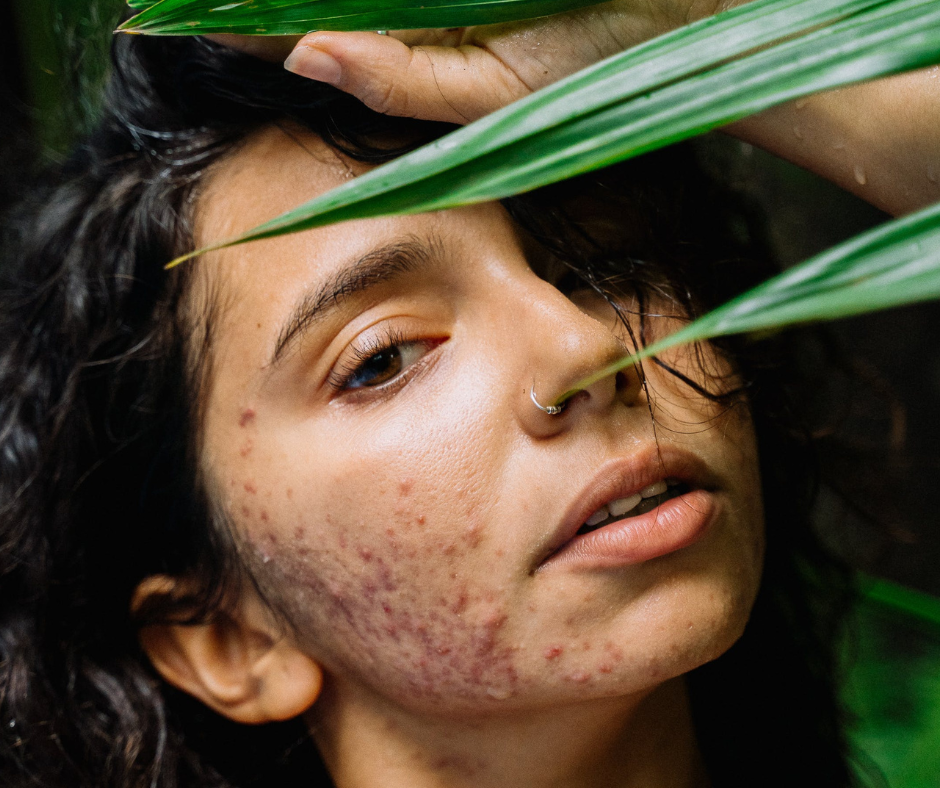
Cystic acne, a formidable skincare challenge, affects many, regardless of age and ethnicity. In our diverse community here at Skin By Duval, we understand the unique complexities of treating cystic acne, particularly in multicultural skin types. This condition is not just a surface-level concern; it’s an indicator of deeper imbalances.
Understanding Cystic Acne
Cystic acne, or nodulocystic acne, is an intense form of acne that results in large, inflamed cysts beneath the skin. Unlike milder acne forms, it's noticeably painful and stems from clogged oil and dead skin cells in hair follicles. It's most common during puberty but can persist or start in adulthood due to hormonal imbalances, dietary sensitivities, and environmental factors.
Symptoms of Cystic Acne
This severe form of acne manifests as large, red, and painful breakouts, often felt beneath the skin before they're visible. It's characterized by nodules without a whitehead, leading to more pronounced acne that can result in scarring. The inflammation can spread, causing more breakouts and triggering a reaction that forms a cyst to contain it.
Causes and Contributing Factors
Cystic acne can be attributed to genetics, hormonal changes, high humidity, pore-clogging skincare products, and certain medications. It often runs in families, with hormonal changes playing a significant role. For women, hormonal shifts during menstrual cycles, pregnancy, or menopause can trigger outbreaks.
Conventional Treatments
While over-the-counter remedies might offer little relief, conventional treatments like isotretinoin (derived from vitamin A) and oral antibiotics are commonly prescribed. However, these can come with side effects such as dry skin, mood changes, and antibiotic resistance.
The Power of Natural Remedies and Lifestyle Changes
A holistic approach can be highly effective in managing cystic acne:
- Dietary Adjustments: Reducing intake of dairy, sugar, caffeine, and processed foods can alleviate symptoms. Instead, focus on a diet rich in probiotics, zinc, vitamin A, fiber, and omega-3 fatty acids.
- Supplementation: Consider probiotics for gut health, omega-3 fatty acids for inflammation, zinc for skin healing, and Vitex or guggul for hormonal balance.
- Essential Oils: Tea tree and lavender essential oils can be applied topically to affected areas, helping combat bacteria and inflammation.
Skincare Tips for Cystic Acne
- Avoid Popping: This can worsen the condition and lead to scarring.
- Gentle Skincare Routine: Opt for calming, non-irritating products.
- Exfoliation: Use gentle exfoliants to promote skin turnover without causing irritation.
- Mind the Sun: Use natural sunscreens to protect sensitive skin.
Lifestyle Recommendations
- Stress Management: Find techniques to reduce stress, which can exacerbate acne.
- Adequate Sleep: Proper rest supports overall skin health.
- Regular Exercise: Physical activity helps in detoxification and stress reduction.
Our Tailored Solutions at Skin By Duval
For those dealing with cystic acne, we offer specialized skincare kits designed for various skin types, including our Moderate Acne Kit and Oily Skin Kit. These products are formulated to address the specific needs of multicultural skin types grappling with cystic acne.
Explore our Moderate Acne Kit: Moderate Acne Kit
Discover our Oily Skin Kit: Oily Skin Kit
Your Next Steps
For a personalized approach to managing cystic acne, book a FREE consultation with us. Our team at Skin By Duval is dedicated to helping you achieve clear, healthy skin, offering expert advice tailored to your unique needs.
This extended blog covers a comprehensive understanding of cystic acne, its treatment, and lifestyle adjustments, particularly for multicultural skin types, and highlights our specific product recommendations and consultation services.


